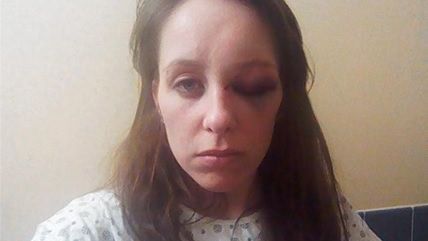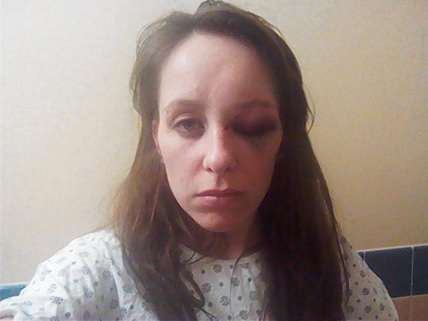NYPD Cop Accused of Rape, Assault, False Arrest—Might Be Gone Already If He Were a College Student


Bronx resident Erica Noonan has filed a $150 million lawsuit against the New York Police Department and Officer Carlos Becker, accusing him of pulling her over because he found her attractive and then pressuring her into a date to help with her DUI arrest. On the date, via the New York Daily News:
Becker ordered Noonan a drink that made her feel groggy, she says.
She woke up in the officer's bed the next morning with a black eye and almost no memory of the night, according to her lawsuit. Becker, the woman says, told her she had injured herself.
Noonan says Becker used his power and status as a cop to lure her into the romantic rendezvous.
"I am deeply saddened and hurt by the acts of Officer Becker against me," she said. "It is my sincere hope that the NYPD takes measures to ensure that another citizen is not violated, as I was, at the hands of a police officer."
Noonan's lawsuit accuses the officer and the city of excessive force, negligent training, assault, battery, false arrest, rape, libel, malicious prosecution, abuse of authority, harassment and other violations.
Becker also videotaped Noonan's rear end at the precinct after arresting her, but the official misconduct case against him was thrown out. From the Daily News:
Becker was cleared in December of misdemeanor official misconduct in connection with Noonan's arrest when a Bronx judge ruled that the cop's videotaping of the woman's backside was reprehensible but not an unauthorized use of a police function.
The judge said the officer committed several other acts that could have been characterized as misconduct but let Becker walk because Bronx prosecutors had built their case around the filming incident.
As the national conversation on sexual assaults on campus heats up—thanks in part to the Obama Administration encouraging a lower "preponderance of the evidence" standard (basically needing to clear 50-50 on whether someone might be guilty) in sexual assault cases—cases like this illustrate why encouraging a lower burden of proof makes more sense for government employees handed badges and guns and given free range than students on a college campus.


Show Comments (42)